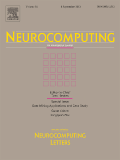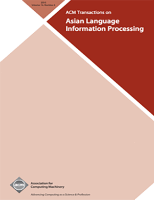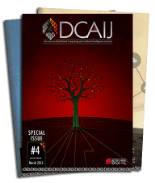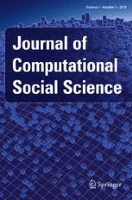
COMPUTATIONAL LINGUISTICS
metrics 2024
Unlocking New Frontiers in Language and Technology
Introduction
COMPUTATIONAL LINGUISTICS is a premier academic journal published by MIT Press, focusing on the intersection of linguistics and artificial intelligence. With the ISSN 0891-2017 and the E-ISSN 1530-9312, the journal serves as a key resource for researchers and practitioners in computational linguistics, a field that plays a crucial role in advancing language processing technologies. Since adopting an Open Access model in 2017, the journal has broadened its accessibility, encouraging a global exchange of ideas and research findings. It consistently ranks within the top quartiles of its respective fields, achieving Q1 status in Artificial Intelligence, Computer Science Applications, and Linguistics and Language as of 2023. This notable standing is further reflected in its Scopus rankings, placing it in the 99th percentile for Language and Linguistics, and maintaining a prestigious position in various computer science categories. The journal publishes cutting-edge research, theoretical frameworks, and practical applications, and aims to foster interdisciplinary collaboration among linguists, computer scientists, and AI specialists. As the field evolves, COMPUTATIONAL LINGUISTICS remains an essential platform for disseminating transformative ideas and pioneering work that shapes the future of language and technology.
Metrics 2024
 1.37
1.37 3.70
3.70 4.20
4.20 115
115Metrics History
Rank 2024
Scopus
IF (Web Of Science)
JCI (Web Of Science)
Quartile History
Similar Journals

MACHINE TRANSLATION
Bridging cultures with innovative translation solutions.MACHINE TRANSLATION, published by Springer, is a premier academic journal dedicated to the interdisciplinary fields of Artificial Intelligence, Linguistics, and Software Development. With its origins dating back to 1989, the journal has played a crucial role in disseminating cutting-edge research and advancements in machine translation technologies. The journal holds a distinguished Q3 ranking in Artificial Intelligence and Q1 in Linguistics and Language for 2023, underlining its relevance and impact in the linguistic and computational research communities. Despite coverage discontinuation in Scopus, it continues to have impressive rank positions in various categories, including 31st percentile for Language and Linguistics and 112th for Artificial Intelligence. Researchers, professionals, and students can access a wealth of impactful articles that explore the latest methodologies, tools, and applications in the domain of machine translation, solidifying its importance for anyone vested in the future of language technology.

NEUROCOMPUTING
Shaping Tomorrow's AI Through Cognitive UnderstandingNEUROCOMPUTING is a premier academic journal published by ELSEVIER, specializing in the interdisciplinary fields of Artificial Intelligence, Cognitive Neuroscience, and Computer Science Applications. With an impressive impact factor and a Q1 ranking in its relevant categories for 2023, NEUROCOMPUTING is recognized as a leader in fostering innovative research and providing a platform for ground-breaking studies. The journal’s scope covers the convergence of neural computation and artificial intelligence, making it essential reading for researchers and professionals seeking to explore the latest advancements and applications in these dynamic fields. For those interested in the cutting-edge intersection of neuroscience and computational techniques, NEUROCOMPUTING offers a wealth of knowledge that significantly contributes to both theoretical and practical advancements. The journal is dedicated to publishing high-quality, peer-reviewed articles and is an invaluable resource for students and established scholars alike, looking to stay at the forefront of research trends.

ACM Transactions on Asian and Low-Resource Language Information Processing
Transforming challenges into breakthroughs in language technology.ACM Transactions on Asian and Low-Resource Language Information Processing is a distinguished scholarly journal published by the Association for Computing Machinery (ACM), focusing on the processing of Asian and low-resource languages in the field of computer science. With an ISSN of 2375-4699 and an E-ISSN of 2375-4702, this journal serves as a vital platform for researchers and professionals dedicated to advancing language technology and natural language processing in underrepresented linguistic contexts. It has achieved a notable position in the academic community, ranking #94 out of 232 in the broader category of Computer Science with a 59th percentile ranking according to Scopus. As the journal converges on its comprehensive goals from 2015 to 2024, it emphasizes open debates and innovative methodologies to tackle challenges relevant to low-resource language processing. This commitment to publishing high-quality research, though it does not currently offer open access, ensures that the journal remains an essential resource for researchers, educators, and students striving to contribute to this dynamic field.

Machine Intelligence Research
Pioneering Research in Machine Intelligence and BeyondMachine Intelligence Research is a premier academic journal published by SPRINGERNATURE, dedicated to advancing knowledge in the rapidly evolving fields of Artificial Intelligence, Applied Mathematics, and more. With its ISSN 2731-538X and E-ISSN 2731-5398, the journal is recognized for its impact, holding a distinguished position in various Q1 categories for 2023, including Computer Vision and Pattern Recognition and Control and Systems Engineering. Operating under an Open Access model, it ensures that groundbreaking research from China and around the world remains accessible to a global audience, promoting collaboration and innovation. As a beacon for researchers, professionals, and students, Machine Intelligence Research aims to disseminate high-quality research findings, innovative methodologies, and influential theories, thereby shaping the future landscapes of science and technology.

ADCAIJ-Advances in Distributed Computing and Artificial Intelligence Journal
Catalyzing Collaboration in Computing and AIADCAIJ - Advances in Distributed Computing and Artificial Intelligence Journal, published by EDICIONES UNIV SALAMANCA, is an esteemed academic journal dedicated to the rapidly evolving fields of artificial intelligence, computer networks, and distributed computing. With its commitment to Open Access since 2012, the journal ensures that cutting-edge research is accessible to a global audience, fostering collaboration and innovation in the scientific community. Based in Spain, ADCAIJ is making significant strides with its current status in the Q3 quartile across various domains, including Artificial Intelligence and Information Systems. Despite its emerging status, it ranks with great potential, providing a platform for researchers to share their findings and contribute to advancements in these critical areas. The journal not only facilitates knowledge dissemination but also encourages interdisciplinary approaches that are crucial for tackling contemporary challenges. As it continues to expand its influence from 2019 through 2024, ADCAIJ is poised to play a key role in shaping future research trajectories and technological applications in its field.

PROCESAMIENTO DEL LENGUAJE NATURAL
Bridging Disciplines: Where Language Meets TechnologyPROCESAMIENTO DEL LENGUAJE NATURAL, published by the SOCIEDAD ESPAÑOLA DE PROCESAMIENTO DEL LENGUAJE NATURAL (SEPLN), is a premier journal that serves as a vital resource in the interdisciplinary fields of Computer Science and Linguistics. With an impressive 2023 impact factor ranking it as Q2 in Computer Science Applications and Q1 in Linguistics and Language, this journal offers valuable insights into the latest advancements and research trends. Based in Spain, and associated with the University of Alicante, the journal provides a platform for the dissemination of high-quality research, contributing significantly to the understanding of natural language processing and its applications. Although it operates under a traditional subscription model, the accessibility and relevance of its content make it an essential read for researchers, professionals, and students keen on exploring the intersection of language and technology. The journal’s performance, reflected in its Scopus ranks that place it in the top percentiles across various categories, reaffirms its importance in academia and its commitment to fostering innovation and knowledge in the field.

AI, published by MDPI, is a distinguished open access journal dedicated to advancing the field of artificial intelligence. Since its inception in 2020, the journal has swiftly established itself as a prominent platform for scholarly research, currently ranking in the Q2 category for 2023 within the artificial intelligence sector according to Scopus. With an impressive global reach from its base in Basel, Switzerland, the journal aims to foster innovation and collaboration among researchers, professionals, and students alike, providing a forum to share groundbreaking findings and applications in AI. The journal's commitment to accessibility ensures that research is available to a wide audience, enhancing knowledge dissemination and contributing significantly to the ongoing evolution of artificial intelligence technologies. To explore the latest in AI research, readers can access articles through their open access model, encouraging an inclusive academic environment.

Journal of Computational Social Science
Transforming Social Science with Cutting-Edge ResearchThe Journal of Computational Social Science, published by SpringerNature, is a premier platform for interdisciplinary research at the intersection of social sciences and computational techniques. Since its inception in 2018, this open-access journal has garnered attention for its robust contributions to the fields of Artificial Intelligence and Transportation, holding a distinguished Q2 ranking in both categories as of 2023. Situated in Singapore, the journal embraces a wide scope aimed at exploring innovative applications of computational methods to address complex social phenomena, making it an essential resource for researchers, professionals, and students alike. With a growing impact and recognition—reflected by its Scopus rankings, notably at the 47th percentile in Transportation and 63rd in Artificial Intelligence—the Journal of Computational Social Science is dedicated to facilitating knowledge exchange and fostering collaboration in an era where technology increasingly informs social dynamics. Access to cutting-edge research in this field is vital for enriching scholarly discourse and advancing practical solutions to contemporary challenges.

International Arab Journal of Information Technology
Connecting Scholars to Transform the Tech WorldWelcome to the International Arab Journal of Information Technology, a prestigious publication under the aegis of ZARKA PRIVATE UNIVERSITY in Jordan, dedicated to advancing the field of Information Technology. First established in 2008, this journal has made significant strides in disseminating high-quality research, achieving an impressive Q2 ranking in Computer Science (miscellaneous) and securing a notable 57th percentile position in the Scopus rankings. With a comprehensive scope encompassing various sub-disciplines of computer science, the journal is committed to promoting scholarly dialogue and innovation among researchers, professionals, and students. While currently operating as a subscription-only journal, it remains a vital resource for the academic community seeking to explore the latest trends and advancements in technology. The International Arab Journal of Information Technology is not only a platform for original research but also a vibrant hub for ideas that shape the technological landscape of the Arab region and beyond.

Language and Linguistics Compass
Connecting Scholars Across the Globe in Language ResearchLanguage and Linguistics Compass, published by Wiley, stands as a premier journal in the field of linguistics, showcasing innovative and interdisciplinary research. With its ISSN 1749-818X and E-ISSN matching, the journal has built a robust reputation, achieving an impressive Q1 ranking within the linguistics category for 2023, placing it in the top 4% of its field. Its Scopus rank of 48 out of 1167 highlights its influence and significance among linguistics journals, boasting a commendable 95th percentile. This journal serves as a vital resource for researchers, professionals, and students, offering a wide range of accessible articles that illuminate current trends and advances within the domain of language studies. Although it is not Open Access, the journal is committed to quality and diversity in its publications, ensuring scholarly articles from various sub-disciplines of linguistics are represented from 2008 through 2024. Located in the United Kingdom, Language and Linguistics Compass invites contributions from around the globe, reinforcing its status as a leading forum for linguistic discourse.